4v291o
The movie opens with a fire Jay-Z/Linkin Park remix and that hyped me up. It sucks cause it was a big disappointment.
Foxx and Farrell are typical men of action with zero personality, and there's so little of themselves in their mission that they have to give them both a romantic partner so that the bad guys can prey on them and have something at stake.
There are some nice shots but it all feels generic. I watched some clips from the original show and it's more of the same but at least there it was the 80s, so it's better.
Anyway, I liked when they shoot José and he completely splatters against the wall.
]]>
Hopelessness drives people to cheat on each other, to step on their peers, to let people around you rot and decay. Satántángó is a film about rot and decay. From the very beginning of the film, the infamous 8-minute long shot of cows walking, we can see that life struggles around this place. There’s no grass for the cows to feed on, there are only endless mud trails that even in the best boots it would be a chore to walk on. The houses are exposed to the elements and it’s clear no effort has been made to improve their state in a long time.
There’s a shared sense of hopelessness for the future and none of the villagers have plans to deal with this besides indulging in the small pleasures they can still find, whether that be alcohol or sex, pleasures that often come at the expense of their neighbours’ well being. That until Futaki hears Mr. Schmidt plotting to steal a payment meant for all the village farmers.
And for 4 hours, which for the film’s introduction, we accompany them, we become their neighbour and we are invited to take part in their lives, not as an invitation to judge them but to see what life feels like when you’re also a part of this village, to walk a mile in their shoes.
Nothing particularly important is going on in these folks’ lives until the news about Irimiás’ return hits them, then, they all start going mad. Irimias is a very interesting figure in the film, since he works as a kind of messianic figure. It’s not clear what Irimias’s role in these people’s lives was before his departure, but he’s revered by all of them, even feared by some. He’s intelligent, well-read, and has a superiority complex that drives him to feel a deep contempt for the village and the people in it, contempt that escalates into a plan to destroy the place with the use of explosives, although if this plan is eventually realised or not is left to open interpretation.
It’s clear Irimiás took with himself some of the villagers’ hope for the future, a bright young man could’ve been of much help in their lives. And this is one of the most saddening aspects of the film, for all intents and purposes, he fulfills the role of a god in their lives. His apparent return from the dead sends everyone into a deep state of concern about what he will think of the state the place is in, about how they will be judged, because if someone can make ‘a castle out of filth’, that’s him. But he despises them, and he takes the fact that he is their biggest hope to his advantage. Everyone was tricked into giving everything away to a false god.
The fate of the rest of the characters is left to interpretation; the doctor and Futaki in particular, the two characters that share visions of bells tolling. It’s unclear to me what these represent, but if there’s hope for at least one of the characters that’s Futaki, he’s the only one strong enough to tell Irimiás to go fuck himself and to give him his money. That’s the most positive aspect about the characters’ fates, and it would be easy to dismiss the film as just misery porn, but there’s a very honest aspect to the way the film depicts hopelessness. Satántángó refuses to portray sad situations just to evoke easy or immediate emotions, but it wants us to dwell on the situations presented in an unfiltered way, which is what the film’s length is mostly there for.
So, does the film warrant to be this long? It’s complicated. Personally, I didn’t mind, only the third and fourth hours felt like a chore to me (Estike torturing the cat, and the endless diatribe of the drunk guy at the bar were painful to sit through), but everything else flowed nicely. I spread the seven hours through the whole day, respecting the two intermissions present in the film. Even when I sat through the final three hours of the film I felt very little intent to get up or check the time. Satántángó has a way of immersing yourself into its own reality and, with that, creating its own time. And, it's meant to evoke what it was like to live in a Hungarian village in the late twentieth century, life ed slowly, sometimes you just had to sit and see the cows walk around.
Yes, maybe it could benefit from trimming the fat and reducing its runtime, but for what it intends to be I’d say it does a good job. It’s a demanding work of art but it’s worth it to give it a chance.
]]>
this time i watched it with my mum 👩
]]>
I finally listened to Remain in Light and Speaking in Tongues from back to back and had a great time, so I felt like watching this again. I only knew the more famous songs the first time I watched this, but there was a screening near so it was then or never.
It's the perfect balance between being a big spectacle and an intimate performance. There's the buildup with how the band show up one by one but there's also the fact that there aren't much special effects and that the stage looks small and cozy.
Everyone on stage oozes personality, and every bit of it is captured on camera. Byrne in particular, from his iconic dance in Life During Wartime to him playing with the lamp in Naive Melody.
My main complaint with this show is how little the big suit is used. Everything else is perfect, even if you've never listened to Talking Heads, chances are you'll have a great time.
]]>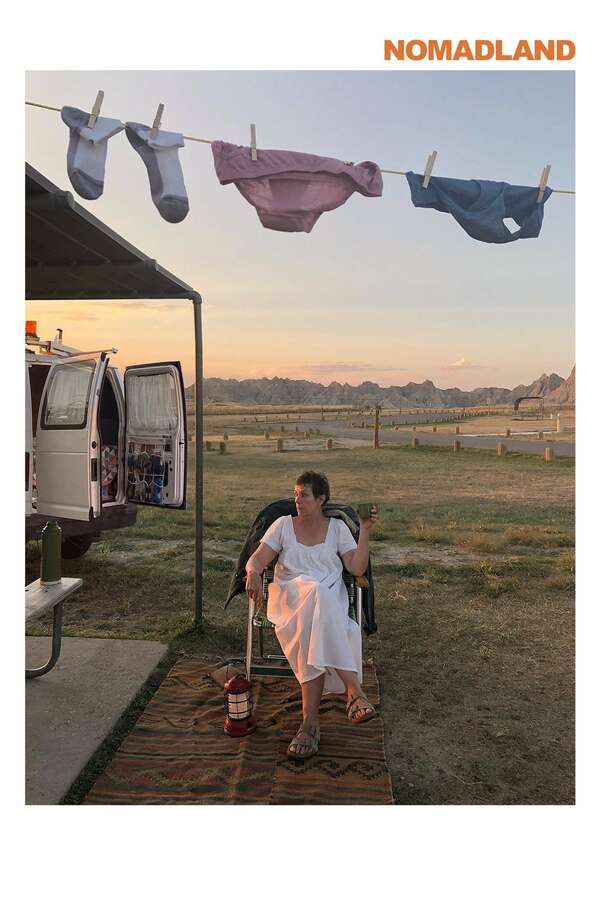
This review may contain spoilers.
There's a subtle difference between romanticising something and just being optimistic and hopeful, Nomadland does both in a clumsy way.
There's a discussion to be had about the current state of the economy, about how more and more of us might end up houseless or just in a shitty job that barely covers our expenses and how there's an immense value in finding other people in a similar situation to ours who we can rely on and build a community with.
In that aspect, Nomadland does a pretty good job. But then it turns out, right at the end of the movie, that Fern always had a safety net, her sister had money, she always had the chance of settling down and live an easier life. Her nomad life was more a spiritual thing more than a necessity or a fight for survival.
This takes away a lot of meaning from the film to me. Because all those takes showing the beauty of the landscapes Fern visits, and the little interactions she has with her friends feel a lot faker now. Those beautiful places are tourist locations, and she is a visitor, she has this life because she chose it.
And this is not the kind of thing I'd like to see romanticised (also, notice the lack of scenes showing the dirtiest, less scenic parts living in a van, or the shitty jobs she takes, there are a few, but they're more like an afterthought), poverty isn't pretty, it's not something to look forward to, and it shouldn't be portrayed (or d) as a pleasant alternative to a more conventional life.
I believe it could've been handled better, like making clear from the beginning that Fern lives #thatvanlife for personal reasons more than as a necessity.
Anyway, the positive aspects of finding a community still stand, so I guess that it's not entirely bad.
]]>
Gosh, I'm feeling a lot of things right now.
I loved the ending. Everything tied together perfectly, and the final fight with Belos, and King's dad, and Titan-Luz were so cool, I felt like a little kid for a moment.
I'm gonna miss everyone, King and Hooty (and my boy Hunter, looking cool as fuck in that wolf t-shirt) in particular.
]]>
I wish there had been more time for the series to establish in a better way who the Collector is and what they want, and what happened during the time Luz and co were missing from the Isles.
With everything happening with King and Belos, I don't think spending that much time in New Hexside was a good choice but we got to see Camila doing magic and Willow getting some character growth.
]]>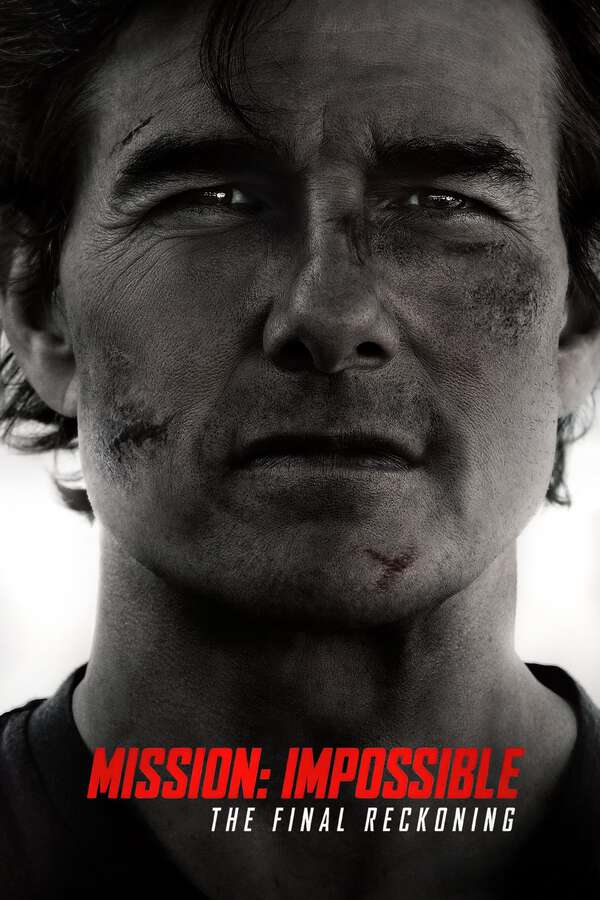
I go to the Mission: Impossible movies for the spectacle and the stupidly over-the-top stunts Mr. Cruise pulls off. This one delivers, but not as much as I would expect for what seems to be the final chapter of this saga (or at least the last featuring the best samurai in cinema history).
It takes a long time to get to the exciting parts, and it's way too gloomy during that time. I get that the stakes are higher than ever and Luther died, but for this franchise it feels wrong to start like that.
The submarine sequence was intense and the final battle on the planes was so epic, but deep in my heart I know he wouldn't have survived those. And I don't feel that way about the previous impossible missions, they ask for less suspension of disbelief on my part.
Anyway, I only feel this way slightly. It's still epic and all, but it could've been better.
Ranking: Mission: Impossible
]]>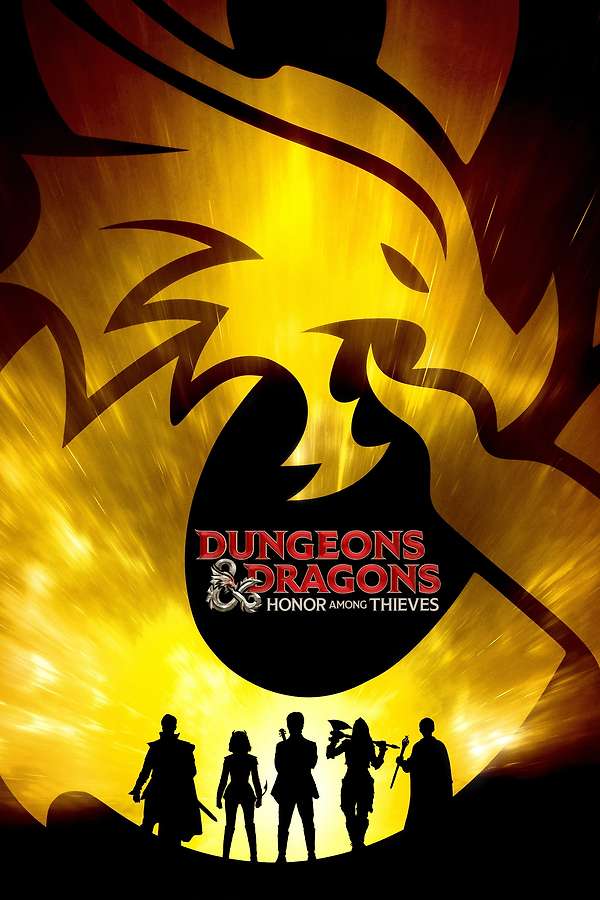
— 'What is it exactly that you bring to this?'
— 'Me? I'm a planner. You know? I make plans.'
— 'You've already made the plan, so what value do you have now?'
— 'If the plan fails, the existing plan, I make a new plan.'
— 'So you make plans that fail.'
At times these characters and their interactions feel a lot like a Guardians of the Galaxy copy, but y'know, it's only at times.
They're funny, the dialogue is funny, and the action is pretty decent. I liked the scene where they interrogate the dead warriors, and the final battle was pretty epic. Visually, the movie is okay, and the world is interesting. I liked that monster they fight near the end, the panther with venus flytraps.
I had my fun, and at the end, the sacrifice Edgin makes regarding his wife and Holga was meaningful and showed his growth. It's a nice movie.
I have never played D and D.
]]>
"«Write 1500 words on the importance of the free market in the free world and win $500.» Yeah. I'd only need 70 of those every year." - Liz Murray
I just finished my statistics college course and this is the movie my professor wanted to close with. He was torn between picking this one and The Devil Wears Prada. For some inexplicable reason he picked this Lifetime t over that, you can't believe guess how disappointed I feel.
My mom sometimes puts Lifetime on TV so I was already expecting the worst. And yeah, the movie is sappy and is more concerned with being misery porn rather than building Liz's character, but it has its well constructed moments. I particularly liked the scene of Liz's mom's funeral, where she lies over the casket and re the two of them playing in the park. It's a nice moment.
There's a clear intention of just making the viewer cry as much as possible. There's not much focus as to how Liz became so interested in reading the encyclopaedias her neighbour got her, or how she managed to study so much while living in the streets, or how she stayed in with her friend after leaving for Boston.
At least Thora Birch's performance was good. And seeing a baby Elliot Page was a nice surprise.
]]>
This film is hopeful, even when Franz is made a prisoner, even when he is being beaten up by the nazis and his family loses the respect of everyone in town. The movie chooses to linger on Franz's prayers and Fani's happy moments with her kids. It feels hopeful even if we know form the very start what Franz's destiny is.
And at the end of the day, we know they didn't have it that hard, compared to the other victims of WW2. They got to keep their farm, and Fani wasn't persecuted. It's a tragic situation but its not portrayed as a sad ending. They're both convinced that they'll meet each other again and that's enough.
Franz (like this movie) is driven by his ideals, and the main goal of A Hidden Life is to show us how painful and, at the same time, fulfilling, that can be.
Also, I could watch 10 hours of paint drying if it was directed by Malick. Every line feels like a poem, every scene like a dream or a distant memory, I love his style so much.
Ranking: Terrence Malick
]]>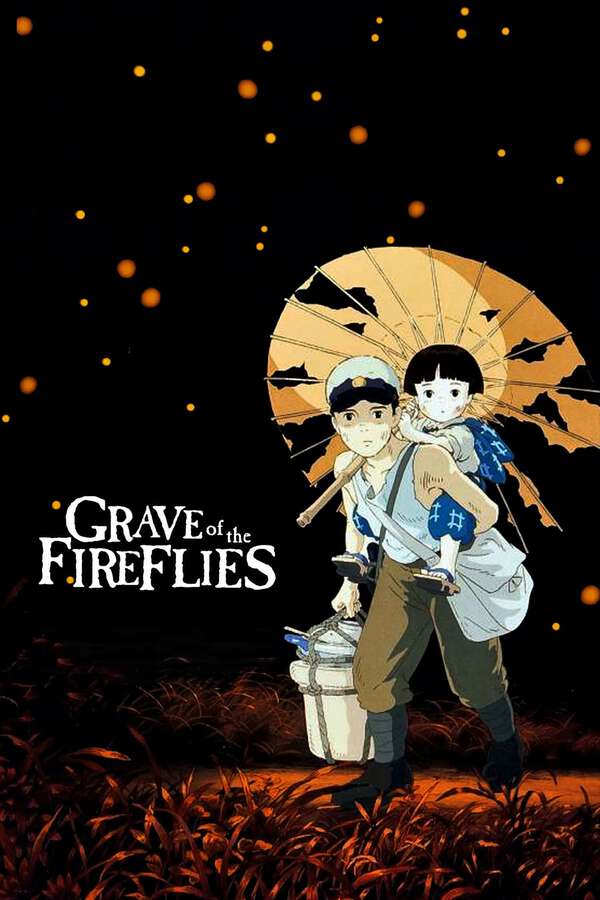
I watching this during the pandemic and being devastated, in a way beyond just being sad for watching children die. There was an underlying sense of frustration and I couldn't place where it came from.
I watched it again with my mom, and I being mad at Seita. I kept thinking that he didn't have to move to the cave, he could've asked for help, or try to get a job, or just put up with her bitch aunt and stay with her.
But that wouldn't be fair, would it. He is a kid, facing his world being torn to pieces without being able to do much about it. I started to think of him as a man, the same way his aunt saw him.
The truth is, we don't know if her aunt wouldn't have eventually kicked them out, or if he would be able to take care of Setsuko while having a job, or if spending his mom's money earlier would've made a difference.
What we know is that every time he asks for help, it's denied to him. His aunt has no problem with letting them be homeless, the farmer is willing to let Setsuko die alone, and the people in the train station, at the beginning, only look at him with disgust while he dies. He is offered some food but it's too late for him.
These three instances have something in common. I didn't know if I ed correctly so I went and checked again, and I was right. The people at the train station say, 'He's filthy! What will the Americans think!?'. Their biggest concern is the impression they are giving as a nation, to the people that bombed their country. Having a kid starving to death in a public place isn't good optics, it doesn't help to redeem the image of this fallen empire.
In the same way, the aunt's biggest concern isn't that Seita isn't helping, is that he isn't serving his country. He's not training to become a soldier, which is the only honorable thing left for him to do. It's not like Seita would mind, he has great faith in his country, his dad is in the marine so he knows that they are a powerful force. But Setsuko needs him, he also happens to be a kid, so that's really not an option right now.
Also, we have to keep in mind that resources were low, so it's reasonable for Seita to avoid spending her mother's money, being the safety net they have left. When the farmer almost kills him, he was only protecting himself, who knows when will he need all of that food, maybe that will make the difference between living or dying, right?
The Americans are responsible for the bombing which killed the kids' mother, this eventually would result and Seita and Setsuko's deaths. However, even taking this into consideration, I left this movie feeling like I was meant to feel the same contempt towards the Japanese.
The adults in Seita and Setsuko's life may not have directly killed them, but they denied them the help they needed to survive, and they did it for their country, to keep their pride and honor while everything around them crumbled.
Can I really blame them, though? Do I have such a right? I have never faced a similar situation so I can't say I would've made better decisions.
War doesn't kill only soldiers, it doesn't contain itself to battlefields. It always leaves sterile land behind it, in which life will struggle to grow for eras after the fire has ceased.
We can be infected by it, even if were the victims of the conflict. Of course, life and happiness will find its way but it will be short-lived. Grave of the Fireflies is happy to share that ephemeral joy with us but it won't paint the picture prettier than it is.
I have seen no other war movie like it.
]]>
Fun heist movie with the most ridiculous ending I have seen. Johnny Clay deserved the money, I don't care about sending a good message to the audience.
The story is well crafted and it's thrilling to watch the plan unfold but it's not that big of a deal.
Ranking: Stanley Kubrick
]]>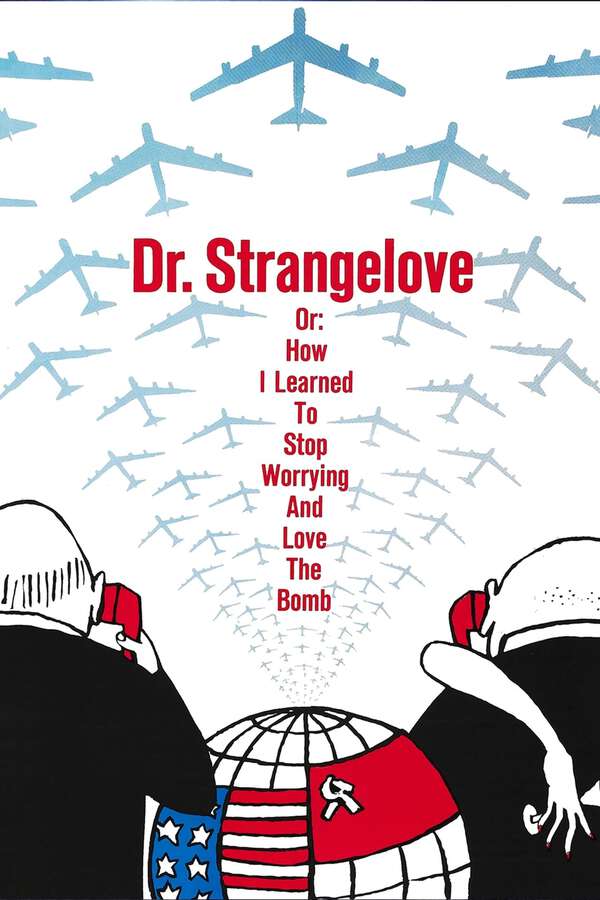
Perhaps one of the best achieved comedies and most poignant political satires ever made. Every aspect of this is too close to reality to call a parody, this is what Mutual Assured Destruction will lead us to.
Our fates are decided by sexually frustrated men with a deathwish.
Ranking: Stanley Kubrick
]]>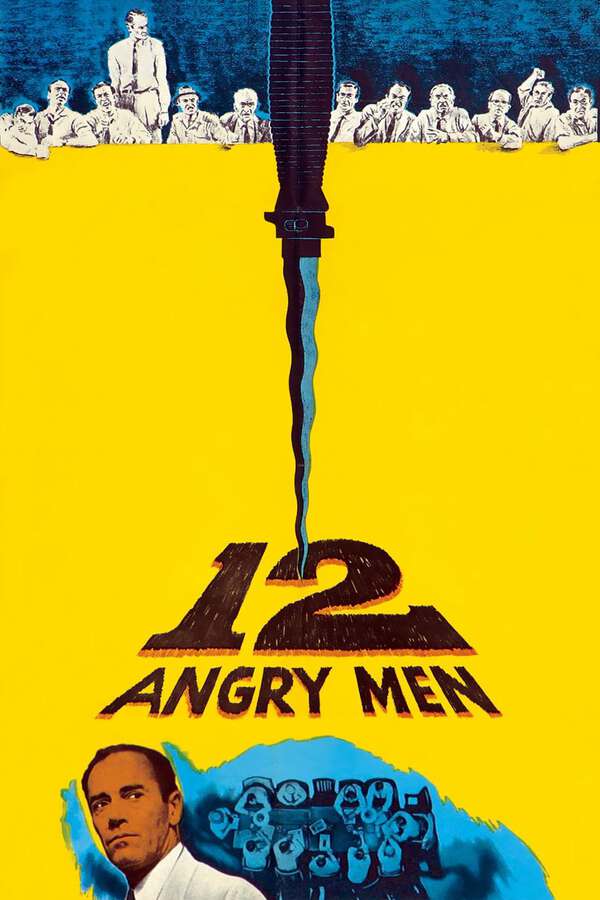
It surprised me a little when the old man stood up for Henry Fonda. In a room of men filled with contempt for (amongst other things) the youth, it speaks volumes that the one with an open mind, the first one to be willing to listen to the dissenter and consider the kids innocence is the oldest one.
He knows salty old men like him, he gives his speech about an elder citizen being left alone and seizing a chance to be heard and to exercise power, and an hour later, the closest to him in age is revealed as this person. A man who wants to be seen and to assert dominance spews his horrid worldviews and crumbles after being given the cold shoulder by his peers.
This kind of foreshadowing happens also when the stubborn juror tells Fonda that he will kill him, minutes after saying that those words prove the kid's culpability. It's telling us something, these men have drawn a subconscious line that separates the kid from them. It's not just that they're incapable of self-reflection but it's also that they never judge the kid's actions the way they judge their own.
The purpose of a system it's what it does. The titular twelve angry men have no names, not until the end, they have numbers. We know specific facts about their lives: one of them grew up poor, one is a school teacher, one has lost to his son. But before anything else they're participants in a system, one that will let them decide the fate of a human life, one that asks them to think about that fact as little as possible.
Under scrutiny it becomes clear that most of these men either don't care or are following their personal biases to decide this kid's fate, and that they have no real arguments to stand on. The boy's innocence isn't proven completely, there are a lot of times where Fonda can't provide a compelling argument, but that's not the point. There's reasonable doubt and that should make a difference.
It's scary to think that Fonda is probably the character you're the least likely to encounter in real life.
Every once in a while you encounter a piece of art that changes your definition of what perfection looks like. This film, driven entirely by dialogue and performances, taking place in just one location, has tons of things to say about life, justice, and empathy.
]]>
It's a love letter, towards movies and music, towards performers of all kinds, towards entertainment, towards honest and genuine art. It exudes happiness and glee, and it doesn't feel forced or fake.
No one was more in love with cinema as a medium than Gene Kelly when he was making this.
And Cosmo in particular made me smile so much.
]]>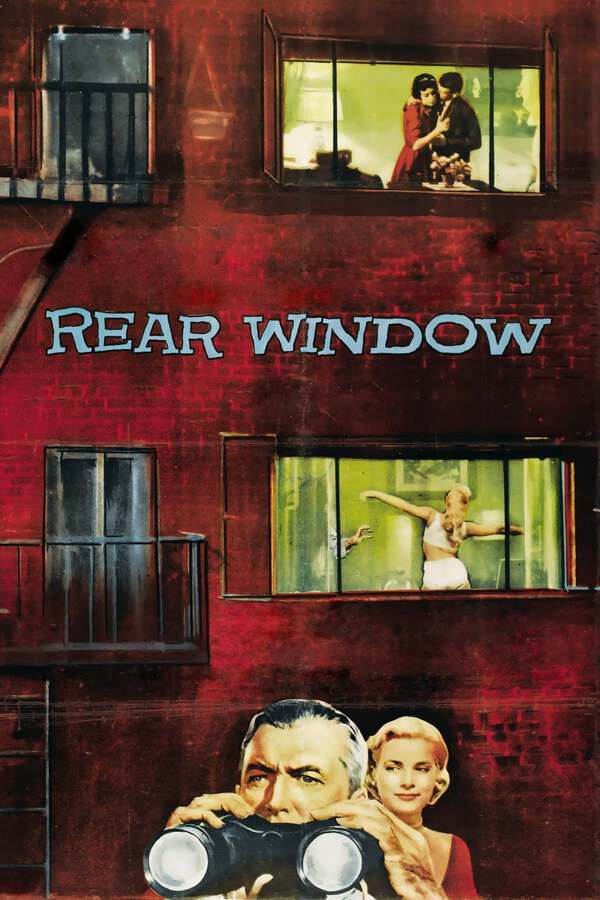
It really amazes me how such a thrilling story can be derived out of a group of people looking at their neighbour's windows.
You know Jeff has been sitting there for weeks, you can't entirely trust him to not be seeing things out of boredom, and the film plays a lot with that as more and more people become convinced of his theories as the film goes on.
The scene before the confrontation in particular was directed with great mastery. So much things happen, a lot is communicated without words, and the tension skyrocketed.
It's probably my favourite of Hitchcock as of yet, tying with Psycho.
]]>
"Rome! By all means, Rome!"
By the time the fight at the party ends, it's clear for Ann that Joe knows who she is. Maybe she even realised that Joe knew all along, so when they have to part and he drops her off at the castle, there's no big "oh, btw, I'm a princess" reveal. They both know, they both kept it to themselves so it wouldn't get in the way of being with each other, enjoying each other's company.
So there's a little sign of relief in Ann's face when she finds out Joe was part of the press. It turns out, they we're both hiding something.
Even when they couldn't be together, being so far apart from each other, it was clear for them at all times that this particular day they would for the rest of their lives, and that they had to do everything to make it as perfect as possible. And they did, and they will always keep those memories.
Audrey Hepburn whacks someone in the head with a guitar.
]]>
This movie understands 20-year-olds better than most people. The fear of not being able to seize opportunities, of disappointing those around you. The ennui of feeling like none of it matters, like everyone else's decisions have more impact in your life than yours.
Mrs. Robinson is a frustrated adult manipulating Ben to, in a way, use his youth to his own advantage. But in a way, every adult around him is doing the same thing. We don't even know what aspirations Ben has in life, people just push him around and impose their will on him.
Elaine ends up representing an escape to all of this. Being the only thing that he's not supposed to have, she becomes the only thing he wants, and at the end, he's not in a better position than before, he made a choice too early that doesn't have a clear outcome for any of them. The choice that meant being free to him, didn't mean anything at all.
It's clever and all, but I hate that Elaine isn't treated like a character by the film. She has no reason that we can see to fall in love with Ben, to forgive him, and to run away with him. Her feelings don't make sense and the film practically tells us to not mind them.
Also, Scarborough Fair is played 3 times in a 10 minute span. What was that? Even my mom got annoyed and she was listening from another room.
]]>
I genuinely thought this premise wouldn't work and the results would be ridiculous, but it's Hitchcock, one way or another it was going to work.
I love how the first third of the movie is just a romance story, the birds plot is foreshadowed just the right amount, it lets you get invested in the characters before pulling the rug and going all crazy.
The way the birds tilt when she was driving was very funny.
]]>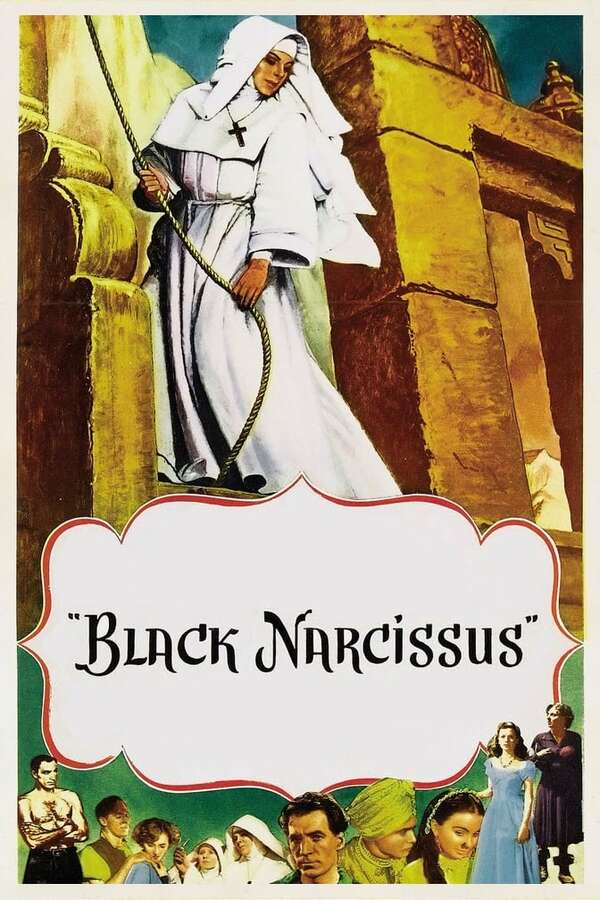
A lot of interesting things are happening in this film. Despite the racist remarks the characters make towards the Indians, and the fact that the plot only follows the white characters, it is clear at all times that the movie isn't taking their side.
The nuns' reject for the culture they find themselves invading is met with the embarrassing realisation that their tenet beliefs are not enough to help them in this situation. They're not helping the Indians, they struggle enough just to keep their sanity.
I wish the film was longer, though. I feel like it didn't go as deep as it could on some of its characters. The shots were beautiful.
]]>
This movie grabbed my heart and drop-kicked it into the ground. It presents feelings as raw as you can see them on a screen.
I've never seen a film use voiceovers like this one does, and Celia Johnson does a fantastic job portraying Laura, there's so much pain and guilt every time she speaks and you can feel she's always in conflict despite the joy that being with Alec gives her.
]]>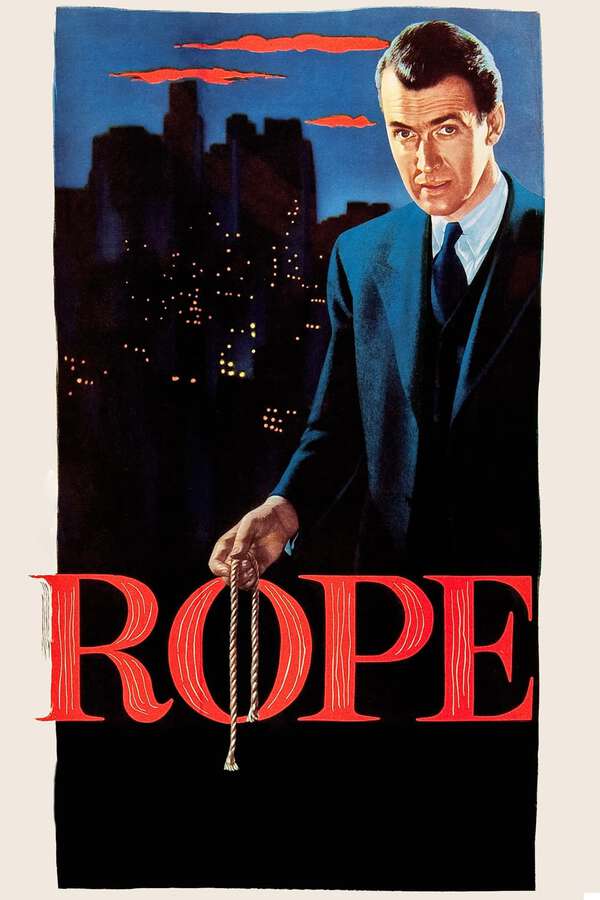
It's very gay, it has you at the end of your seat at all times, and Brandon is so fucking extra all the time which makes it such a thrill to see him do his thing.
The gimmick of making it feel like just a couple of takes without cuts makes it all flow so smoothly, and when the first cut shows you James Stewart's face after the chicken story you just know it's all game over for these psychos. It's a masterclass of editing, montage, and storytelling.
]]>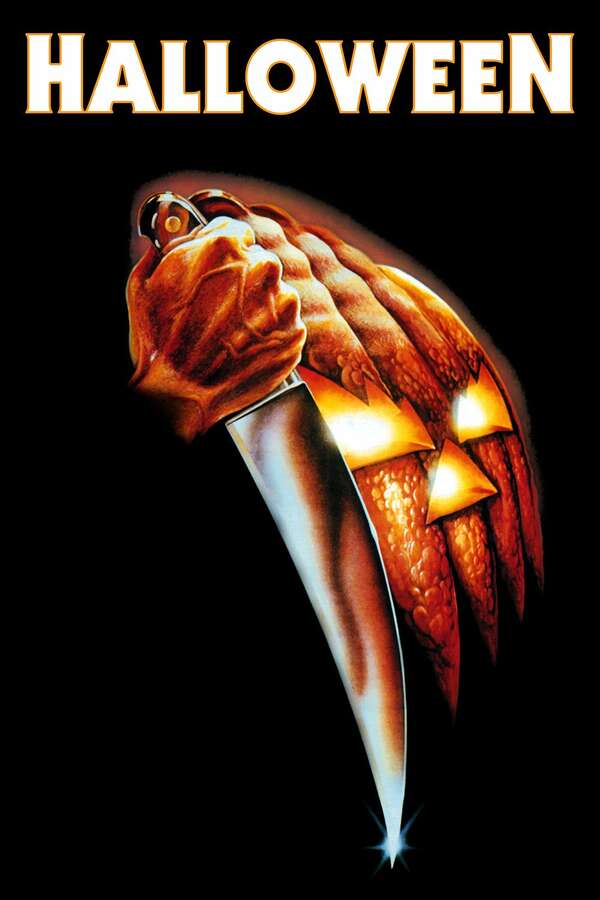
The movements, the setting, the not-so-subtle implication that Michael is not entirely a mortal human. It's amazing how much tension happens considering that the camera is just going back and forth between two houses.
Halloween defined what the horror movie would be, all the ones that came after it take some inspiration of it, and it's easy to see why.
]]>
Tight script, with some of the most engaging dialogue and performances I've ever seen, especially on those flirting scenes.
The way she had him wrapped around her finger at all times was downright chilling.
]]>
An incredibly well thought out thriller dealing with the anxiety of knowing someone you love has done something horrible and not knowing how to handle it.
Young Charlie is placed between a rock and a hard place, forced to make a choice between sticking her neck out to do the right thing and traumatise her mother, and staying silent to keep her safety and the normalcy in her life that she despised so much. Very tense, kinda underrated.
]]>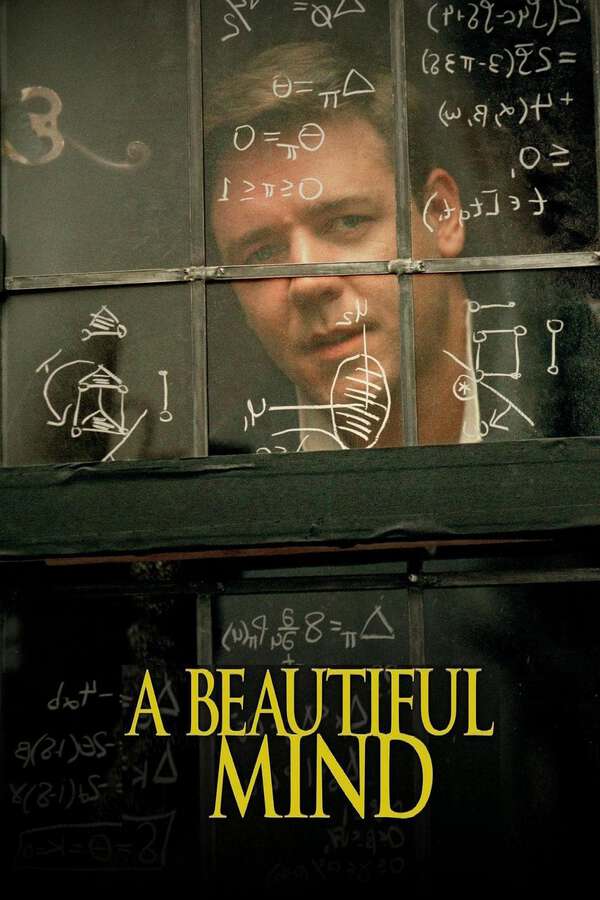
This review may contain spoilers.
I find it funny how the movie implies you'd have to be schizophrenic to find sense in McCarthy's ideas.
I keep thinking that, although the way the schizophrenia plot twist was revealed worked and made me kinda care about the story, more could've been done with it.
We could've seen John actually finding secret messages in media, like, actually see them instead of just showing him making collages and assuming those are there; we could follow him deep inside a rabbit hole of conspiracies until we're as paranoid as him. It could play more with our sense of reality.
It was shocking to me how late everyone around him discovered his condition, and how the film didn't think that there was something interesting to say with that.
It's a cookie-cutter motivational biopic about overcoming disability, with a nice twist a the middle to spice things up, but not much else is going on.
Statistic Assignment #5
Ranking: Ron Howard
]]>
Rick always had convictions and values and things he stood for, even if just in secret. His apolitical front was just a just a way to stop himself from caring about anything, to avoid getting hurt if what he cared for got taken away from him. He found a way to isolate himself from the world and its problems, until life showed him that it wouldn't be that easy.
For him, Ilsa was the only thing worth fighting for, which is, to put it somehow, selfish, a childish way of seeing things. After learning the truth about her departure he finally wakes up and realises how much he actually stands to lose, him and everyone around him. He picks a side, and he pays a big price, but he's satisfied with that decision. He has a reason to care again.
]]>
Dreams and this movie are made of the same thing.
It's weird because I've seen this being parodied, retold, and referenced a thousand times. To see the actual thing feels surreal.
The Wizard of Oz is a love letter to fiction. It shows us that fantasy is more than a mirror of reality.
]]>
I'm torn between hating and loving this movie. It's creative and funny at times but it gave me a terrible headache, the first hour to be precise.
It's a good comedy that takes a lot of unexpected turns but the first half is just a test to see how much you can endure the torture Susan puts poor David through. It gets so annoying and frustrating that I was half expecting her to accidentally kill him or something.
Things settle down a little halfway through the movie, when David actually gets a chance of getting something good out of the situation he's been put into. And when the second leopard appears, I forgave the movie for that headache and became absorbed in the story.
If it was more random, and the shenanigans happened out of chance or some other reason than just Susan being a psycho, it would be funnier, I think.
]]>
I wished I liked it more, it seems this is most people's favourite Chaplin movie. It has great scenes, like when he's rollerskating, or the beginning at the factory, or when Chaplin starts singing.
But I feel like it's longer than necessary, and the story wasn't that engaging to me. It captures how awful is to be looking for a job.
I find Buster Keaton funnier.
]]>
My favourite part of Mary Shelley's novel is when the Monster recalls how he lived hidden in the blind man's house. He saw what love and bonding were like without taking part in it, only to be treated as repulsive when he actually tried to approach them. The way he tells it is heartbreaking, and it tells us about what the work is about, how the way we treat each other determines how much we'll fit into society, how much love we are able to give to others. The monster had the potential to be good if he wasn't treated like a monster.
That's why I had some problems with this movie's predecessor, because it introduced the 'criminal brain'. And also because now the message was something along the lines of "don't play to be God" which isn't as meaningful to me.
But this movie actually brings that scene with the blind man to the screen, now the monster talks, and cries, and he's shown to be able to understand what he's being told. He feels more like a person too, and that makes his choice at the end of the film to have more weight.
]]>
It shines light into how the government (pretty much any government) gives up so easily on marginalised communities, and speaks about the importance of actually giving hope and fighting to give opportunities to kids in these situations.
Like Freedom Writers, I wish it showed more of the perspective of the teenagers.
Statistics Assignment #4
]]>
It has everything I want from a romantic movie. I usually don't care much about straight couples but I enjoy them a lot when they have actual chemistry.
It's an enemies to lovers story that's very charismatic. It set what the genre would be.
The ending scene was hilarious.
]]>
- "I love you."
- "I thought you hated women."
- "But you aren't women."
What a dick.
The dialogue is laughable and the performances too at times, but I don't care much about that. This is a great action movie, and the special effects are amazing for the time the film came out.
It's nice to see stop motion having advanced so much since the days Segundo de Chomón was making a comb move by itself. And the dinosaurs in Skull Island looked great too, no just the monkey. He had a funny face too.
]]>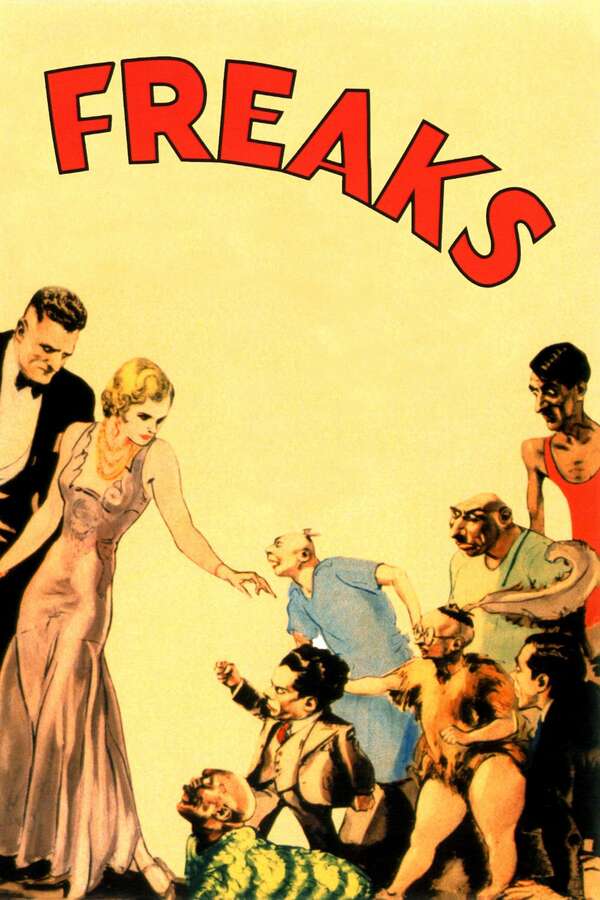
"One of us! One of us!"
The scorn Cleo had for the circus ensemble was too much to hid when they invited her to become part of their family, she only saw that as 'becoming a freak herself'. It's one of the most infuriating scenes I've seen, but it's an excellent foreshadowing of what happens later. She rejected their invitation the first time, the second time there was no invitation.
It's impressive to see a film of this era to treat its disabled characters with more respect than much modern films. You're not meant to feel pity for them, they're not props meant to be there just to fulfill some narrative function. They're characters, real characters, and you sympathise with them before anyone else.
]]>
The first hour was losing me a little, but as soon as they start tracking him down, I couldn't look away from the screen. The scenes breaking into the offices were incredibly tense.
It's interesting what the film does with perspective during the pursuit. Despite his horrific actions, the movie inspires pity for the killer, it also poses an interesting question about justice and punishment.
That last lines of dialogue of the victims' mothers were heartbreaking.
]]>
This review may contain spoilers.
Es de esas películas que te dejan viendo la pantalla como menso por un buen rato después de que terminan.
No voy a decir que no me esperaba lo que le pasa a Luisa, pero el golpe de eso más lo de la relación entre Julio y Tenoch me dejó cierto vacío.
Es muy común que la acción se detenga para que el narrador nos cuente a detalle un suceso adyacente a lo que ocurre: el pueblo de la nana de Tenoch, dos accidentes automovilísticos, el futuro de la familia de Chuy; tal vez no hay una conexión directa entre los eventos pero temáticamente están unidos, en todos hay algo que se apaga, que se termina.
Luisa podrá haber visto sus días desvanecerse frente a ella de un momento a otro, pero decidió hacer algo al respecto, incluso si no estaba segura de cual sería el resultado, y logró hacer las pases consigo misma y con su pasado. Julio y Tenoch tenían una relación llena de pequeñas grietas esperando a crecer (un buen ejemplo es el sutil clasismo de Tenoch), ambos se volvieron totalmente sinceros el uno con el otro, su relación terminó pero eso les permitió darse un pequeño momento de honestidad real.
Todos los protagonistas pierden algo al final, pero el viaje valió la pena para cada uno de ellos.
"La vida es como la espuma, por eso hay que darse como el mar".
]]>
The effects are nice, and I can recognise the impact this movie had on culture.
I'm still kind of disappointed, I expected something closer to the novel. I knew that changes were needed to tell the story in 70 minutes, but that time could've been used in a better way, showing more of the monster to begin with.
The monster becoming evil after being rejected and unloved was an important part of the story for me, but this movie replaced that by saying that he was evil 'cause he was given a 'criminal brain'. I don't like the implications.
Shoutout to the scene with the farmer carrying his dead daughter through the city, that one was a little shocking.
]]>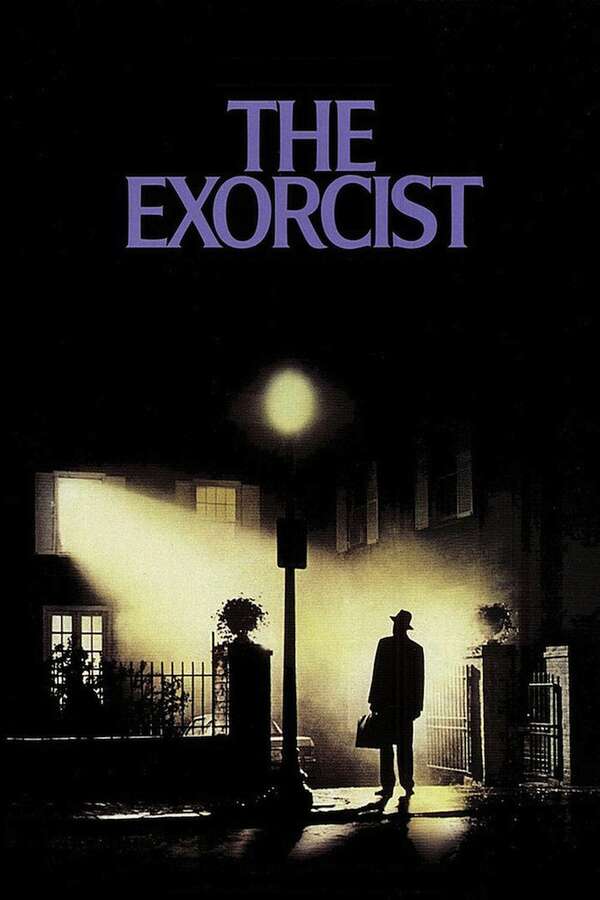
I haven't seen many classic horror films, I have to say that it's a breath of fresh air to see a story like this take its time, not rushing things, not trying to make me jump every other second with a jumpscare or a weird sound, like most recent movies do.
It's scary, and the horror element is always present but it's not overused, it's allowed to lurk on the background, in a way such that you never really feel safe.
The poster shot is iconic.
]]>
At its core, the meaning of cinema lies in the act of putting one image next to another. That's present in any film, even when we strip it of any form of storytelling it still transmits meaning that way. That's why film it's more than illustrated literature, it is its own art.
In Man With a Movie Camera we see a city, and the people that live in it. The are born, and they die; they have fun and they go to work; they live their lives and they see them depicted in a movie theatre. But they're always moving, and every movement is carefully captured in a symphony of twists and turns, in which everything is connected, every part of the city is alive and in harmony with one another.
But there's also the cameraman. He's an artist showing us his craft; we see the process at the same time that we're seeing the finished product. We can see choices being made in real time of what to follow and what to focus on. There's something to look at everywhere, from the top of a building, to the ground under a train.
And the editing part isn't forgotten, we are shown how positioning one frame towards the other brings them to life and completes the job of the cameraman.
It's testament of what cinema means, of what it can make.
]]>
It was fun. I was wary of it being outdated or having some jokes in poor taste, but it doesn't feel homophobic or sexist.
Sugar definitely needed to slap Joe at the end because of how much he lied, she shouldn't have forgiven him right away.
I like how comfortable Jerry is as Daphne. He's cute.
]]>
This review may contain spoilers.
The greater tragedy is that there never was something Scottie could do. He was just destined to see his nightmare happen three times without being able to stop it, despite his efforts.
For a moment I really believed the Carlotta story, Hitchcock is good at messing with your head.
]]>
Here, language doesn't work the way it's supposed to. Nothing means what it would normally do; every word, every single statement is a double edged sword, a tool to break the will of Joan, to make her doubt herself, to damn her in every possible way.
There are two types of torture present: the physical one, of which we see only what's necessary to understand what's going on; and the psychological one, which lingers on and on, it drills into our minds and we're left to wonder how possibly a human doesn't crumble under such pressure.
We are forced to endure that along with Joan, so we can actually understand what her strength is. Her face will never leave my mind.
]]>
I like how the movie actually portrays these problems as systemic issues and doesn't put the blame on the students, but I guess it could do more, we could see more of their perspective. Starting the movie from Eva's POV was a good choice and having Erin as a protagonist works because she's an outsider and it's easier to latch on to her perspective and then move on to Marcus' or Andre's, but the framing doesn't always work.
Not to belittle what going through a divorce or standing up to your racist coworkers is, I'm sure it's hard, but the movie constantly frames these difficulties in Erin's life in the same way as what the kids go through. I constantly get the feeling that the movie is putting both struggles on the same level and that just feels wrong.
It has good intentions, it's not a big deal I guess.
Statistics Assignment #3
]]>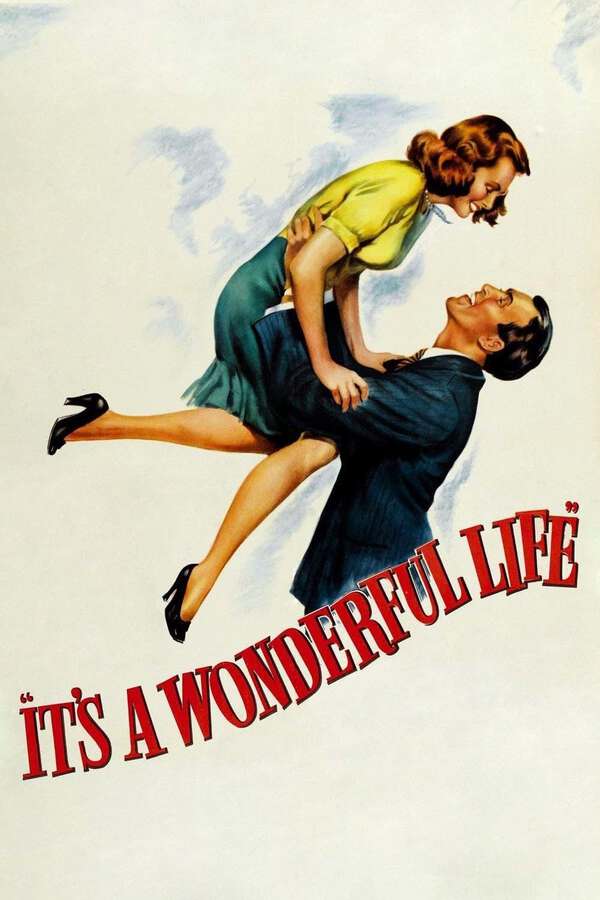
It's like that thing they tell you when you're suicidal, "think about how this will affect everyone around you" and all that, it's just that this film makes you actually think about it.
Our world is run by Mr. Potters and the only way we can make in life it is with the help of our community, whether one we built or the one we were born with, we owe ourselves to each other, and at times that might seem like a fruitless endeavour, but this film is there to remind us what this is all about, those things that we don't see at first, the way we affect those around us.
It's a Wonderful Life might be too romantic but its main goal is to give hope to the viewer and it's damn good at that.
Also, for 20 minutes, it becomes one of the most dreadful horror films I've seen.
]]>
Dreams of glory crushed by pain, death and disillusion. Paul loses everyone around him one by one, he grieves for an enemy soldier only to rationalise it later as 'just another thing that happens at war', he changes so much that his home isn't where he belongs anymore, he's a killing machine now, and that can't be changed anymore.
The editing is impressive, I can see how Battleship Potemkin influenced how action sequences would be put together in the future.
The ending scene with the butterfly hurt a lot.
]]>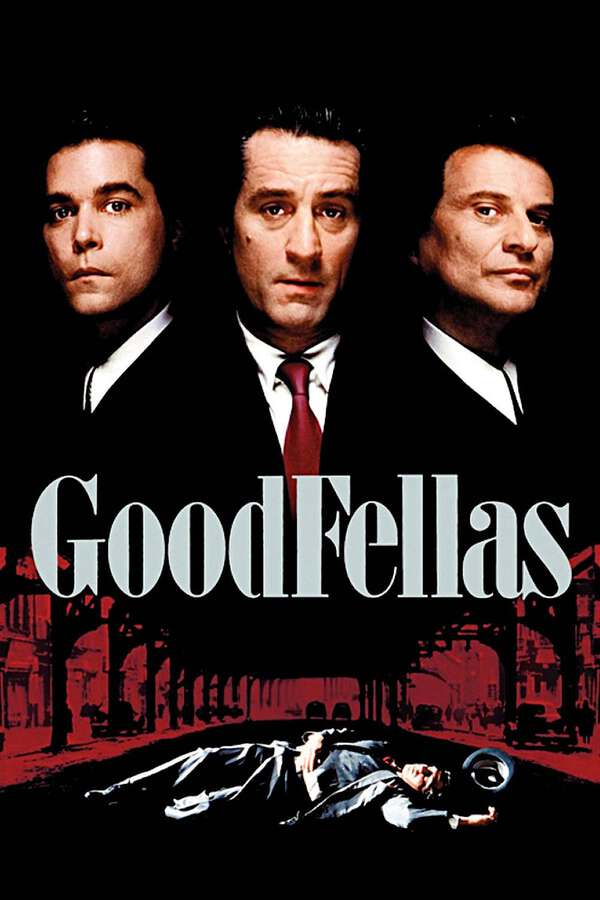
"Funny how? Funny like a clown? Do I amuse you?"
They might be real jerks but they are amusing indeed.
Every line of dialogue is pure gold. Such as every performance, song and editing choice. What else can I say?
Ranking: Martin Scorsese
]]>
The film runs at a brisk pace and it's energetic, but watching people win lots of money will always be exciting in a way. Nothing really stands out, and colour-wise, it always looks dull. Also, the narrated introduction was an awful way to start the movie.
I enjoyed it this time but probably not on a rewatch.
Statistics Assignment #2
]]>- The Good, the Bad and the Ugly
- Midnight Cowboy
- Flow
- Broken Blossoms
- Lawrence of Arabia
- The Cabinet of Dr. Caligari
- The Kid
- Nosferatu
- Nosferatu
- Safety Last!
...plus 51 more. View the full list on Letterboxd.
]]>• Phase 1
• Phase 2
• Phase 3
• Phase 4
- Guardians of the Galaxy Vol. 3
- Guardians of the Galaxy Vol. 2
- Avengers: Endgame
- Guardians of the Galaxy
- Captain America: Civil War
- Black Panther
- Captain America: The Winter Soldier
- Avengers: Infinity War
- Black Panther: Wakanda Forever
- Iron Man 3
...plus 22 more. View the full list on Letterboxd.
]]>- The Lion King
- Lilo & Stitch
- Mulan
- Zootopia
- The Hunchback of Notre Dame
- Beauty and the Beast
- Fantasia
- Atlantis: The Lost Empire
- The Emperor's New Groove
- The Princess and the Frog
...plus 50 more. View the full list on Letterboxd.
]]>Check-In Lists:
2021 • 2022 • 2023 • 2024 • 2025
Directors:
Allen • Bird • Coen • Coppola • del Toro • Fincher • Gilliam • Hitchcock • Howard • Iñárritu • Jackson • Lee • Linklater • Lynch • Malick • Mangold • Miyazaki • Nolan • Refn • Rodriguez • Scorsese • Singer • Snyder • Spielberg • Tarantino • Zemeckis
Franchises/Sagas:
Batman • Black Mirror • EVANGELION • Fast & Furious • Marvel Cinematic Universe • Mission: Impossible • Spider-Man • Star Wars • The Conjuring • Wizarding World • X-Men
Studios/Distributers:
A24 • Disney Animation Studios • DreamWorks Animation • Illumination Entertainment • Pixar • Sony Pictures Animation • Studio Ghibli
Others:
• 2005, Ranked
- Star Wars
- Star Wars: The Last Jedi
- Return of the Jedi
- The Empire Strikes Back
- Star Wars: Episode III – Revenge of the Sith
- Rogue One: A Star Wars Story
- Star Wars: The Force Awakens
- Solo: A Star Wars Story
- Star Wars: Episode II – Attack of the Clones
- Star Wars: Episode I – The Phantom Menace
...plus 1 more. View the full list on Letterboxd.
]]>- Puss in Boots: The Last Wish
- How to Train Your Dragon
- Kung Fu Panda 2
- The Prince of Egypt
- Shrek 2
- Shrek
- How to Train Your Dragon 2
- Megamind
- Spirit: Stallion of the Cimarron
- Kung Fu Panda
...plus 21 more. View the full list on Letterboxd.
]]>Average score: 3.6
- Raiders of the Lost Ark
- Schindler's List
- Jurassic Park
- Saving Private Ryan
- Indiana Jones and the Last Crusade
- Jaws
- Catch Me If You Can
- Indiana Jones and the Temple of Doom
- The Color Purple
- E.T. the Extra-Terrestrial
...plus 7 more. View the full list on Letterboxd.
]]>i need to revisit a lot of them
- Everything Everywhere All at Once
- I Saw the TV Glow
- Climax
- Aftersun
- Swiss Army Man
- After Yang
- The Lighthouse
- First Reformed
- Ex Machina
- Lady Bird
...plus 24 more. View the full list on Letterboxd.
]]>- GoodFellas
- Casino
- Taxi Driver
- The Departed
- The Irishman
- The Last Temptation of Christ
- Shutter Island
- The Wolf of Wall Street
- The Aviator
- The Age of Innocence
...plus 2 more. View the full list on Letterboxd.
]]>- Man of Steel
- Batman v Superman: Dawn of Justice
- Justice League
- Zack Snyder's Justice League
- Suicide Squad
- The Suicide Squad
- Wonder Woman
- Wonder Woman 1984
- Shazam!
- Shazam! Fury of the Gods
...plus 6 more. View the full list on Letterboxd.
]]>Every movie I watched for the first time in 2024.
- The Punisher
- Green Street Hooligans
- Punisher: War Zone
- Green Street Hooligans 2
- Godzilla Minus One
- Saltburn
- Inuyasha the Movie: Affections Touching Across Time
- Inuyasha the Movie 2: The Castle Beyond the Looking Glass
- Inuyasha the Movie 3: Swords of an Honorable Ruler
- Inuyasha the Movie 4: Fire on the Mystic Island
...plus 36 more. View the full list on Letterboxd.
]]>things i've seen that aren't movies
- BEEF
TV Show
- Zootopia+
TV Show
- Moon Knight
TV Show
- Loki
TV Show
- The Falcon and the Winter Soldier
TV Show
- South ParQ Vaccination Special
TV Episode
- WandaVision
TV Show
- Pretend It's a City
TV Show
- ariana grande: excuse me, i love you
Music Concert
- The Queen's Gambit
TV Show
...plus 61 more. View the full list on Letterboxd.
]]>- Interiors
- Crimes and Misdemeanors
- Match Point
- Love and Death
- Annie Hall
- Sleeper
- Blue Jasmine
- Midnight in Paris
- Husbands and Wives
- Zelig
...plus 21 more. View the full list on Letterboxd.
]]>Every movie I've watched for the first time in 2021.
- Ocean Waves
- The Departed
- Nightcrawler
- V for Vendetta
- Spirited Away
- The Founder
- Fantasia
- Synecdoche, New York
- El Topo
- Saludos Amigos
...plus 262 more. View the full list on Letterboxd.
]]>- Guardians of the Galaxy Vol. 2
- Avengers: Endgame
- Captain America: Civil War
- Black Panther
- Avengers: Infinity War
- Thor: Ragnarok
- Spider-Man: Far From Home
- Marvel's The Defenders
- Spider-Man: Homecoming
- Doctor Strange
...plus 2 more. View the full list on Letterboxd.
]]>- The Young and the Damned
- Los Caifanes
- The Exterminating Angel
- Macario
- The Place Without Limits
- Tempestad
- Canoa: A Shameful Memory
- Amores Perros
- The Secret Formula
- Roma
...plus 90 more. View the full list on Letterboxd.
]]>- Let's Go with Pancho Villa!
- The Young and the Damned
- El compadre Mendoza
- Aventurera
- A Family Like Many Others
- Nazarin
- Él
- The Woman of the Port
- The Place Without Limits
- You’re Missing the Point
...plus 90 more. View the full list on Letterboxd.
]]>…Because this is a mess.
Studios:
• Stand-Alone (not DCUAOM) movies: 1 - 27
• DCU Animated Original Movies: 28 - 83
Sagas:
• DC Animated Universe (DCAU): 20 - 29
• DC Animated Movie Universe (DCAMU / New 52): 30 - 45
• Tomorrowverse: 46 - 55
• Stand-Alone Movies: 56 - 83
Excluded Franchises:
- DC Showcase (short films)
- Lego Movies (with an obvious exception)
- DC Super Hero Girls
- Batman Unlimited
- The Batman vs. Dracula
Follow up to The Batman (2004-2008).
- Superman: Brainiac Attacks
- Teen Titans: Trouble in Tokyo
Theatrical finale for Teen Titans (2003-2006).
- JLA Adventures: Trapped in Time
- Batman: Return of the Caped Crusaders
Tied with Batman vs. Two-Face (2017).
- The Lego Batman Movie
- Batman vs. Two-Face
Tied with Batman: Return of the Caped Crusaders (2016).
- Scooby-Doo! & Batman: The Brave and the Bold
- Batman Ninja
- Teen Titans Go! To the Movies
...plus 73 more. View the full list on Letterboxd.
]]>Seasons 4 to 6
- Doctor Who: The Smugglers
Season 4
Entirely missing (4/4)
- Doctor Who: The Tenth Planet
Partially missing (1/4)
Ep: 4
- Doctor Who: The Power of the Daleks
Entirely missing (6/6)
- Doctor Who: The Highlanders
Entirely missing (4/4)
- Doctor Who: The Underwater Menace
Partially missing (2/4)
Eps: 1, 4
- Doctor Who: The Moonbase
Partially missing (2/4)
Eps: 1, 3
- Doctor Who: The Macra Terror
Entirely missing (4/4)
- Doctor Who: The Faceless Ones
Partially missing (4/6)
Eps: 2, 4, 5, 6
- Doctor Who: The Evil of the Daleks
Partially missing (6/7)
Eps: 1, 3, 4, 5, 6, 7
- Doctor Who: The Tomb of the Cybermen
Season 5
...plus 13 more. View the full list on Letterboxd.
]]>Seasons 1 to 3
- Doctor Who: An Unearthly Child
Season 1
- Doctor Who: The Daleks
- Doctor Who: The Edge of Destruction
- Doctor Who: Marco Polo
Entirely missing (7/7)
- Doctor Who: The Keys of Marinus
- Doctor Who: The Aztecs
- Doctor Who: The Sensorites
- Doctor Who: The Reign of Terror
Partially missing (2/6)
Eps: 4, 5
- Doctor Who: Planet of Giants
Season 2
- Doctor Who: The Dalek Invasion of Earth
...plus 17 more. View the full list on Letterboxd.
]]>- Doctor Who: The Christmas Invasion
- Doctor Who: The Runaway Bride
- Doctor Who: Voyage of the Damned
- Doctor Who: The Next Doctor
- Doctor Who: Planet of the Dead
- Doctor Who: The Waters of Mars
- Doctor Who: The End of Time
- Doctor Who: A Christmas Carol
- Doctor Who: The Doctor, the Widow and the Wardrobe
- Doctor Who: The Snowmen
...plus 16 more. View the full list on Letterboxd.
]]>Seasons 24 to 26
- Doctor Who: Time and the Rani
Season 24
- Doctor Who: Paradise Towers
- Doctor Who: Delta and the Bannermen
- Doctor Who: Dragonfire
- Doctor Who: Remembrance of the Daleks
Season 25
- Doctor Who: The Happiness Patrol
- Doctor Who: Silver Nemesis
- Doctor Who: The Greatest Show in the Galaxy
- Doctor Who: Battlefield
Season 26
- Doctor Who: Ghost Light
...plus 2 more. View the full list on Letterboxd.
]]>Seasons 22 and 23
- Doctor Who: Attack of the Cybermen
Season 22
- Doctor Who: Vengeance on Varos
- Doctor Who: The Mark of the Rani
- Doctor Who: The Two Doctors
- Doctor Who: Timelash
- Doctor Who: Revelation of the Daleks
- Doctor Who: The Mysterious Planet
Season 23
- Doctor Who: Mindwarp
- Doctor Who: Terror of the Vervoids
- Doctor Who: The Ultimate Foe
Seasons 19 to 21
- Doctor Who: Castrovalva
Season 19
- Doctor Who: Four to Doomsday
- Doctor Who: Kinda
- Doctor Who: The Visitation
- Doctor Who: Black Orchid
- Doctor Who: Earthshock
- Doctor Who: Time-Flight
- Doctor Who: Arc of Infinity
Season 20
- Doctor Who: Snakedance
- Doctor Who: Mawdryn Undead
...plus 11 more. View the full list on Letterboxd.
]]>Seasons 12 to 18
- Doctor Who: Robot
Season 12
- Doctor Who: The Ark in Space
- Doctor Who: The Sontaran Experiment
- Doctor Who: Genesis of the Daleks
- Doctor Who: Revenge of the Cybermen
- Doctor Who: Terror of the Zygons
Season 13
- Doctor Who: Planet of Evil
- Doctor Who: Pyramids of Mars
- Doctor Who: The Android Invasion
- Doctor Who: The Brain of Morbius
...plus 31 more. View the full list on Letterboxd.
]]>Seasons 7 to 11
- Doctor Who: Spearhead from Space
Season 7
- Doctor Who and the Silurians
- Doctor Who: The Ambassadors of Death
- Doctor Who: Inferno
- Doctor Who: Terror of the Autons
Season 8
- Doctor Who: The Mind of Evil
- Doctor Who: The Claws of Axos
- Doctor Who: Colony in Space
- Doctor Who: The Dæmons
- Doctor Who: Day of the Daleks
Season 9
...plus 14 more. View the full list on Letterboxd.
]]>Every movie I've watched for the first time in 2023.
- Long Day's Journey into Night
- I'm Thinking of Ending Things
- The Game
- Bambi II
- Puss in Boots: The Last Wish
- 10 Cloverfield Lane
- Lady and the Tramp II: Scamp's Adventure
- 101 Dalmatians II: Patch's London Adventure
- The Jungle Book 2
- ariana grande: excuse me, i love you
...plus 82 more. View the full list on Letterboxd.
]]>Average score: 3.9
]]>- Millennium Actress
- Little Miss Sunshine
- The Handmaiden
- Sorry to Bother You
- Grizzly Man
- A Silent Voice: The Movie
- Taxi Driver
- Her
- I Saw the Devil
- The Secret of NIMH
...plus 24 more. View the full list on Letterboxd.
]]>Average score: 4.2
]]>- Grizzly Man
- Little Miss Sunshine
- Ratatouille
- Love Exposure
- Fantastic Mr. Fox
- Scott Pilgrim vs. the World
- The Tree of Life
- Cloud Atlas
- Before Midnight
- Interstellar
...plus 9 more. View the full list on Letterboxd.
]]>- Batman
- Batman and Robin
- Superman and the Mole Men
- Batman
- Superman
- Superman II
- Swamp Thing
- Superman III
- Supergirl
- Superman IV: The Quest for Peace
...plus 44 more. View the full list on Letterboxd.
]]>- Black Panther: Wakanda Forever
- The Guardians of the Galaxy Holiday Special
- Spider-Man: No Way Home
- WandaVision
- Loki
- Doctor Strange in the Multiverse of Madness
- Eternals
- Werewolf by Night
- Shang-Chi and the Legend of the Ten Rings
- The Falcon and the Winter Soldier
...plus 3 more. View the full list on Letterboxd.
]]>- Spider-Man
- The Incredible Hulk
- The Return of the Incredible Hulk
- Spider-Man Strikes Back
- Bride of the Incredible Hulk
- Dr. Strange
- Spider-Man: The Dragon's Challenge
- Captain America
- Captain America II: Death Too Soon
- Howard the Duck
...plus 46 more. View the full list on Letterboxd.
]]>- Dracula
- Drácula
- Frankenstein
- The Mummy
- Murders in the Rue Morgue
- Island of Lost Souls
- The Invisible Man
- The Black Cat
- Bride of Frankenstein
- Werewolf of London
...plus 31 more. View the full list on Letterboxd.
]]>Movies mentioned or referenced by Ian Danskin on his video essay series on Mad Max: Fury Road.
- Mad Max: Fury Road
- A Nightmare on Elm Street
- Alien
- Aliens
- Alien³
- Almost Heroes
- The Avengers
- Avengers: Age of Ultron
- Baby Driver
- Barb Wire
...plus 80 more. View the full list on Letterboxd.
]]>- Ultimate Avengers: The Movie
- Ultimate Avengers 2
- The Invincible Iron Man
- Doctor Strange
- Next Avengers: Heroes of Tomorrow
- Hulk vs. Thor
- Hulk vs. Wolverine
- Planet Hulk
- Thor: Tales of Asgard
- Iron Man & Hulk: Heroes United
...plus 2 more. View the full list on Letterboxd.
]]>